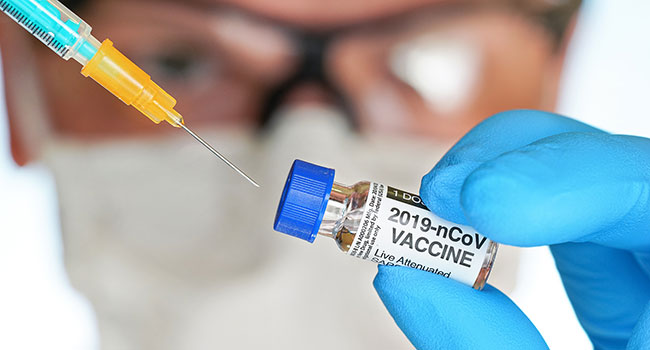What It's Like to be a COVID-19 Vaccine Volunteer
Jul 22, 2020 by CenTrial
I stumbled upon a tweet about a vaccine study from an Oxford University philosopher. He'd volunteered, so I did too, applying online.
A few weeks later, as I arrived for my initial screening at the hospital reception room, staff members in scrubs and masks walked up holding a sign that read "vaccine trial" as if I was in an airport looking for my ride. This was my initial screening to determine my eligibility.
A few weeks later I am in the hospital again watching Matthew Snape, the lead scientist, on a large projector screen as he explains what to expect – what we are allowed to do, and what we shouldn't do, how the science works, and what side effects to look out for.
The 10,000 volunteers needed for this clinical trial will be randomly divided into two groups. One group will receive the test vaccine, while the other group will get a control vaccine that doesn't protect against COVID-19 at all.
I give a blood sample, consent to various procedures, and learn more about the vaccine and its possible side effects (nausea, headaches, etc.). This leaves me feeling a little apprehensive as one possible side effect showed the vaccine could worsen the effects of the coronavirus if I did contract it.
A week later I am back for my vaccination and learn I may not be able to participate as they were running out of samples. I give more blood, and my medical history is reviewed once again. Then the clinician returns with a vial in hand. I'm in. It's over in a few seconds and one or the other of the vaccines is now in my system. I won't learn which one until the trial is over.
A week later I'm back again. I have to rub a cotton swab for 10 seconds on my tonsils, then stick the same swab up my nose as far as it will go. Not fun. I answer a questionnaire about my social activity, and how many people I spent more than five hours with. The swab is mailed off and a few days later I get a confirmation that my coronavirus test is negative.
This is the routine I will repeat once a week for at least four months, as well as having blood tests for the next year. Nothing happens quickly in a clinical trial, a lesson learned when in 1976 fears of a swine flu outbreak led to an accelerated vaccine development that killed 30 of its volunteers due to adverse reactions.
On July 20 researchers announced very promising initial results from a trial of 1,077 people that showed the vaccine was both safe and triggered the desired immune response.
Although there is no guarantee the trial I am in will provide a vaccine against COVID-19, I am pleased to be able to play a small part in a clinical trial the whole world is watching.
In the meantime, I continue to practice social distancing, do what I can to protect my family, and like the rest of the world, I wait.
Next »
20,000 clinical trials are seeking participants.
Signup and be matched to trials near you
This free service will notify you of current and future clinical trial matches.
Signup and be matched to trials near you
This free service will notify you of current and future clinical trial matches.
